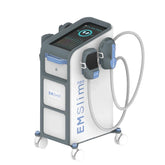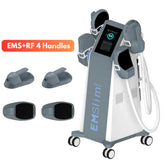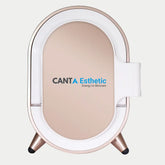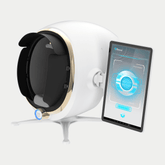Exploring the Secrets of Microneedling Devices: The Ultimate Guide
Introduction
In the ever-evolving world of skincare, microneedling has garnered significant attention for its exceptional skin rejuvenation benefits. This guide will take you through the advantages and mechanisms of microneedling devices and why they are essential tools for any skincare professional.
What is Microneedling?
Microneedling, also known as collagen induction therapy, is a minimally invasive cosmetic procedure. It involves using devices equipped with fine needles to create tiny punctures in the skin. These micro-injuries trigger the skin's natural healing process, stimulating collagen and elastin production. This results in improved skin texture and appearance, enhanced firmness and elasticity, and better blood circulation, giving the skin a youthful glow.
How Microneedling Devices Work?
Microneedling devices, such as dermal rollers and microneedling pens, are the primary tools for this treatment. While both devices function similarly, they are used differently depending on the skin's needs.
- Dermal Rollers: These handheld devices feature a cylindrical roller with fine needles. As the roller moves across the skin, it creates micro-injuries that help with product absorption and collagen stimulation. Dermal rollers are particularly effective for treating larger skin areas like the face and neck.
- Microneedling Pens: These pen-like devices use a cluster of fine needles to penetrate the skin in a controlled and precise manner. With adjustable needle depth settings, microneedling pens are ideal for targeting specific areas such as acne scars, wrinkles, and uneven skin tone. They offer deeper penetration, which is crucial for more intensive skin remodeling.
Advantages of Microneedling Devices
-
Collagen Stimulation: The primary benefit of microneedling is its ability to stimulate collagen production, which is essential for maintaining skin elasticity and firmness. This helps reduce fine lines and wrinkles, giving the skin a more youthful appearance.
-
Improved Skin Texture: By promoting skin cell regeneration, microneedling helps smooth rough or uneven skin texture. It is particularly effective for reducing acne scars, large pores, and stretch marks.
-
Enhanced Product Absorption: The microchannels created by microneedling devices significantly increase the absorption of skincare products. Active ingredients like hyaluronic acid, vitamin C, and retinol can penetrate deeper into the skin, enhancing their effectiveness.
-
Even Skin Tone: Microneedling is also effective in treating hyperpigmentation and uneven skin tone. By breaking down clusters of pigment in the skin, it helps fade dark spots and pigmentation, resulting in a more even complexion.
-
Short Recovery Time: Unlike more invasive procedures, microneedling requires minimal downtime. Patients may experience some redness and sensitivity immediately after treatment, but these effects usually subside within 24 to 48 hours.
Microneedling devices offer a range of benefits, making them a preferred treatment method in modern skincare.
When to Choose a Dermal Roller or Microneedling Pen?
The choice between a dermal roller and a micro-needling pen depends on the client's specific skin concerns:
- Dermal Rollers: Best for overall skin rejuvenation, including improving texture and enhancing product absorption. Dermal rollers are suitable for clients with mild skin concerns who want to maintain a healthy, glowing complexion.
- Microneedling Pens: Ideal for clients with more severe skin issues such as deep acne scars, wrinkles, or pronounced hyperpigmentation. Microneedling pens provide deeper penetration and more targeted treatment, making them the better choice for intensive skin remodeling.
Step-by-Step Microneedling Procedure
A successful microneedling treatment requires careful preparation and execution. Here's a step-by-step guide:
- Skin Analysis: Before starting the treatment, conduct a thorough skin analysis to identify the client's concerns, such as pigmentation, scarring, or uneven skin tone.
- Cleanse the Skin: Begin by cleansing the skin with a salicylic acid cleanser to remove dirt, oil, and makeup residue. This helps maintain the skin's pH balance and prepares it for the microneedling process.


Post-Treatment Care and Recommendations
Proper post-treatment care is crucial to maximizing the benefits of microneedling. Clients should follow these guidelines:
- Avoid Heat: Avoid saunas, hot baths, and direct sunlight for 48 to 72 hours after treatment to prevent irritation and promote healing.
- Moisturize: Keep the skin hydrated with a hydrating serum like hyaluronic acid to support the skin's natural healing process.
- Protection: Apply SPF 50 sunscreen daily to protect the skin from UV damage, which can exacerbate pigmentation and delay healing.
- Follow-Up Treatments: For optimal results, schedule follow-up microneedling sessions every 3 to 4 weeks. This will allow for gradual improvement in skin texture, tone, and overall appearance.
Conclusion
Microneedling devices, whether dermal rollers or microneedling pens, are powerful tools in the hands of skincare professionals. They offer a non-invasive yet highly effective solution for addressing a range of skin concerns, from fine lines and wrinkles to pigmentation and acne scars. By incorporating microneedling therapy into your treatment offerings, you can help clients achieve smoother, firmer, and more radiant skin.
Now is the perfect time to invest in microneedling devices for your beauty clinic or salon. These devices deliver impressive results and ensure client satisfaction, adding significant value to your skincare treatment portfolio.
 🏅️
🏅️ 






